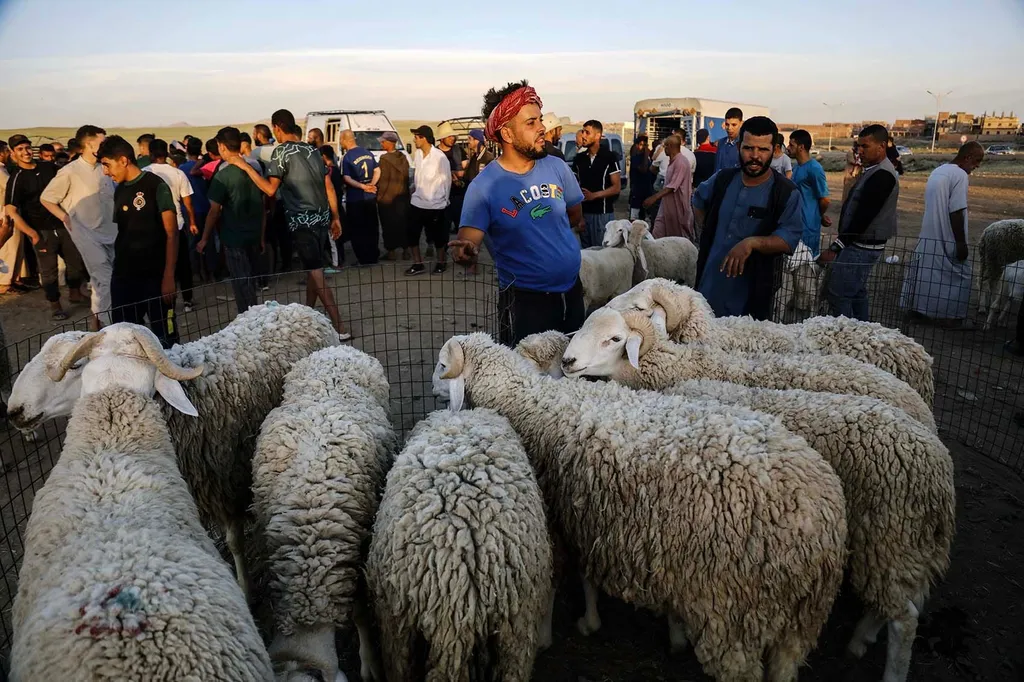In the sprawling landscapes of Algeria, where sheep farming is a cornerstone of rural livelihoods, a silent and insidious virus has been quietly undermining productivity. Maedi-visna virus (MVV), a small ruminant lentivirus, causes chronic multisystemic diseases that lead to reduced milk production, weight loss, and respiratory issues in sheep. Until now, the epidemiological landscape of MVV in Algeria has remained a mystery. A groundbreaking study, led by Takfarinas Idres from the Laboratory for Livestock Animal Production and Health Research at the Rabie Bouchama National Veterinary School of Algiers, has shed light on the prevalence and risk factors associated with MVV in Algerian sheep herds.
The study, published in the journal ‘Animals’ (translated to English as ‘Animals’), is the first of its kind in Algeria, providing crucial data that could shape future veterinary strategies and economic planning. The research team conducted a cross-sectional survey of 1400 sheep across four regions: East, Center, West, and South. Using indirect ELISA (IDvet) for serum analysis, they uncovered an overall seroprevalence of 9.07%, a figure that varies significantly across different demographics and regions.
One of the most striking findings was the disparity in seroprevalence between male and female sheep. “Females exhibited a seropositivity rate of 20.44%, compared to just 3.68% in males,” Idres noted. This stark difference suggests that prolonged herd retention and vertical transmission might be significant factors in the spread of MVV. The study also found that older sheep (1-5 years) were more likely to be seropositive than younger ones (<1 year), highlighting the chronic nature of the disease.Geographically, the Central region showed the highest seroprevalence at 3.36%, while the Eastern region had the lowest at 0.86%. This variation could be attributed to differences in farming practices and industrialization levels. Interestingly, the study found no association between seroprevalence and breed or farming system, contrasting with previous studies and indicating unique transmission dynamics in Algeria.The economic implications of these findings are substantial. MVV's impact on productivity can be devastating, leading to reduced milk yields, weight loss, and increased mortality rates. For a country like Algeria, where sheep farming is a vital part of the agricultural sector, understanding and mitigating the spread of MVV is crucial for economic stability and growth.Idres emphasized the importance of targeted surveillance and control measures, particularly focusing on ewes. "Our findings underscore the need for ewe-focused control measures and genetic research to mitigate transmission," he said. The study also hints at the possibility of genetic resistance in seronegative animals within high-prevalence herds, an area that warrants further investigation.This research not only provides foundational insights into MVV epidemiology in North Africa but also offers actionable frameworks for resource-limited settings. It enriches the global understanding of small ruminant lentiviruses (SRLV) heterogeneity and paves the way for more effective veterinary strategies.As the agricultural sector continues to evolve, studies like this are invaluable. They provide the data and insights needed to develop targeted interventions that can protect livestock and ensure the sustainability of farming practices. For Algeria and other regions grappling with MVV, this research is a beacon of hope, guiding the way towards a healthier, more productive future for sheep herds and the communities that depend on them.

